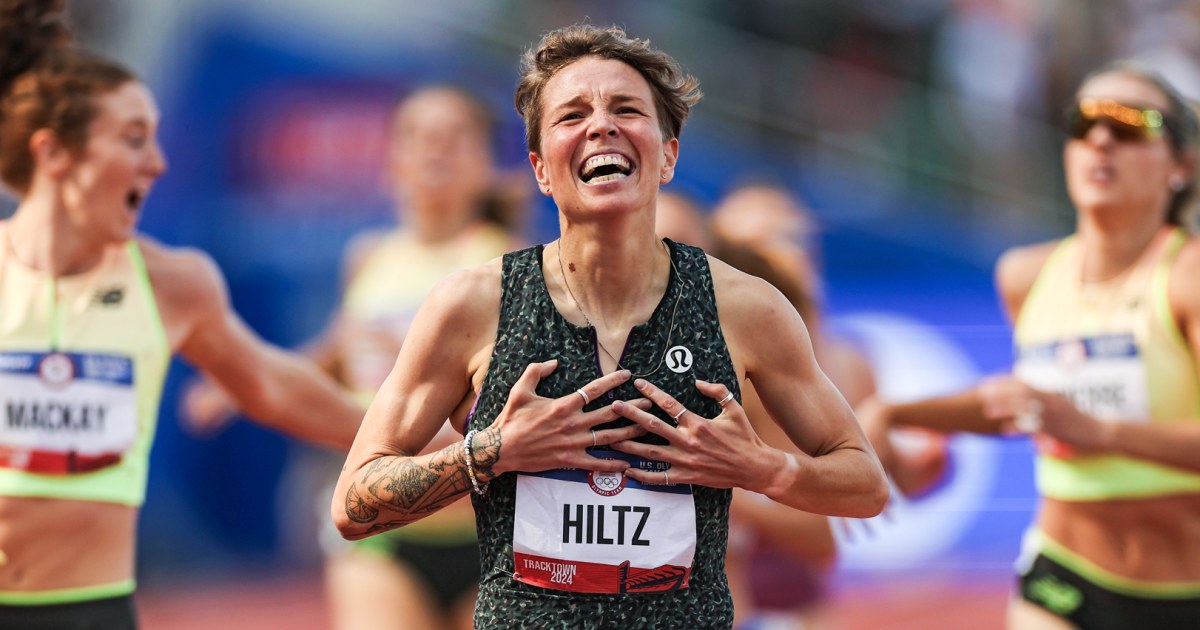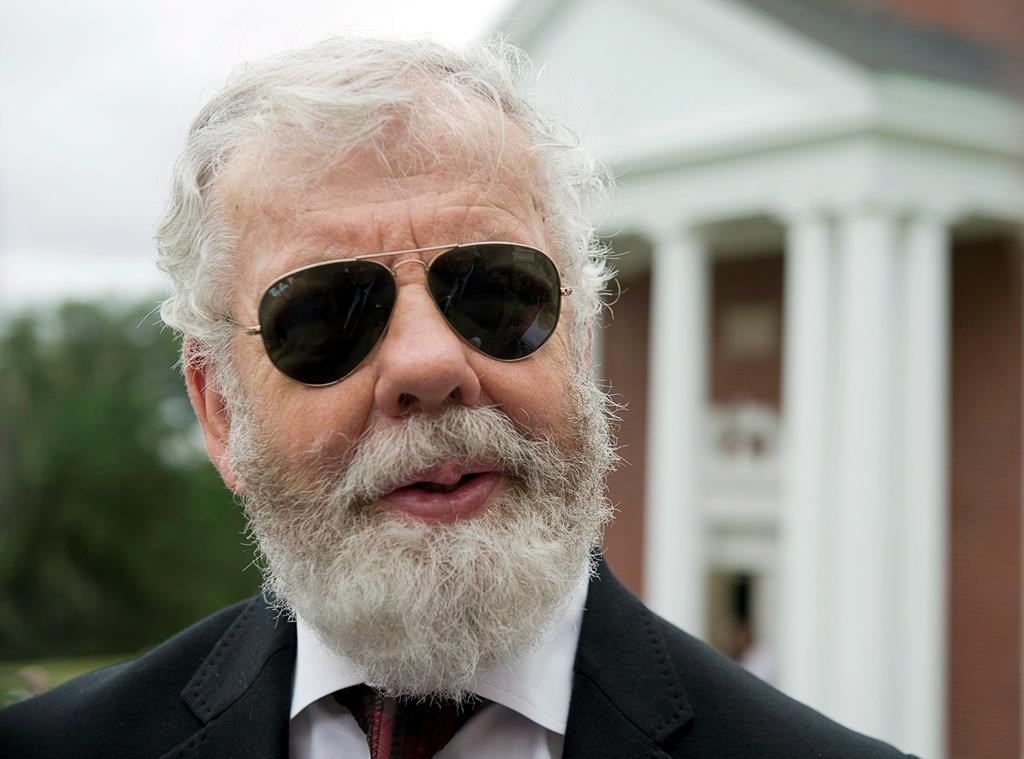Transgender and nonbinary middle-distance runner Nikki Hiltz ran the second fastest time ever of any American in the women’s 1500-meter race at the U.S. Olympic Trials Sunday, qualifying for the 2024 Olympic Games in Paris.
Hiltz, who uses they/them pronouns, charged ahead of Elle St. Pierre and Emily Mackay in the final stretch of the race, finishing with a time of 3:55:33, a trials record. All of the top eight finishers set a new personal best time, according to OutSports. Paris will mark Hiltz’s Olympic debut.
In a post-race interview with NBC Sports, Hiltz, 29, said the race had significance beyond their personal accomplishment.
“This is bigger than just me. It’s the last day of Pride Month. … I wanted to run this one for my community,” they said. “All the LGBT folks, yeah, you guys brought me home that last hundred [meters]. I could just feel the love and support.”
Hiltz said Elle St. Pierre, who finished third and was the top-finishing American in the Tokyo Olympics women’s 1500, pushed them and the other runners to go faster. St. Pierre was in the lead for most of the race, finishing the first lap in 61 seconds.
“Elle St. Pierre has elevated women’s distance running. I saw the time, and I didn’t think that was possible,” Hiltz told NBC Sports. “We all had to rise because of her. … Awesome team we’re sending to Paris.”
Pierre and the second-place finisher, Emily Mackay, also qualified for the Paris Olympics Sunday.
Hiltz wrote in a social media post Monday that a childhood dream of theirs came true when they qualified for the Paris Olympics.
“I’m not sure when this will fully sink in,” they wrote. “All I know is today I’m waking up just so grateful for my people, overwhelmed by all the love and support, and filled with joy that I get to race people I deeply love and respect around a track for a living.”
The International Olympic Committee updated its rules regarding transgender athletes in 2021 to defer to each sport’s governing body.
World Athletics, which oversees international track and field competition, adopted a policy last year that bars all trans women athletes who went through male puberty from competing in female track and field categories. Trans men are allowed to compete in male categories if they have satisfactory signed declarations of their gender identities.
World Athletics’ policy doesn’t specifically mention athletes who are nonbinary, meaning those who identify as neither exclusively male nor exclusively female. However, nonbinary competitors who were assigned female at birth are generally allowed to compete in female categories if they haven’t received hormone therapy.
Hiltz won’t be the first nonbinary athlete to participate in the Olympics. Canadian soccer star Quinn became the first openly transgender and nonbinary athlete to participate in the Olympics in Tokyo in 2022. They went on to become the first transgender athlete to win a medal at the Olympics when Canada beat Sweden 3-2 in penalty kicks.
Quinn was among at least 186 out LGBTQ athletes who competed at the Tokyo Games, according to OutSports. Hiltz hasn’t been the only LGBTQ athlete to qualify for the Paris Olympics so far. Timo Cavelius of Germany will be the first out gay man to compete in Olympic judo, according to OutSports.
For more from NBC Out, sign up for our weekly newsletter.





